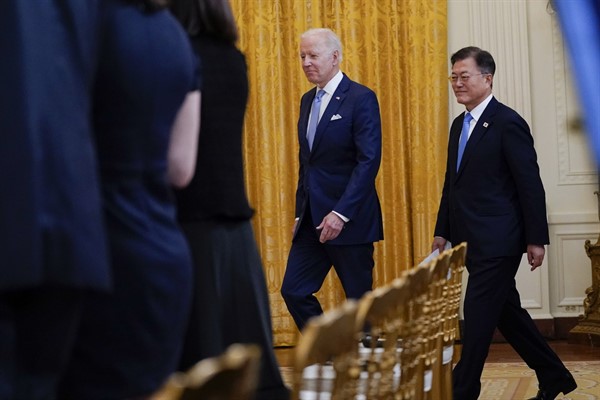South Korea’s era of “strategic ambiguity” when it comes to taking sides in the great power rivalry between its historical ally and its rising neighbor is well and truly over. The Moon Jae-in government has moved away from seeking a middle ground between the U.S. and China. Quietly but surely, Seoul has decided to side with Washington in its competition with Beijing.
The signs of this shift are everywhere. Prominent examples include the joint statement signed by Moon and U.S. President Joe Biden in May, which called out Beijing’s behavior in everything but name, and Seoul’s military build-up, which targets China as much as North Korea, particularly with the commissioning of an aircraft carrier to be deployed in international waters that include the South China Sea. Further illustrations are Moon’s participation in Biden’s exclusive 12-leader plenary during the recent Summit for Democracy and the Global Supply Chain Resilience summit in October. The Moon government also enthusiastically took part in the G-7 summit in June, where it signed the Open Societies Statement that also implicitly targeted China. And as if that weren’t enough evidence of a newfound willingness to quietly stand up to Beijing, South Korea also tested a submarine-launched ballistic missile while Chinese Foreign Minister Wang Yi was in Seoul for talks with the South Korean government in September.
Seoul is not yet willing to openly chastise Beijing in the same way that Washington or some of its other allies are doing. And there is no talk in South Korea about decoupling from China. After all, China is South Korea’s largest trading partner, its millennia-old neighbor and an important actor in dealing with North Korea.

